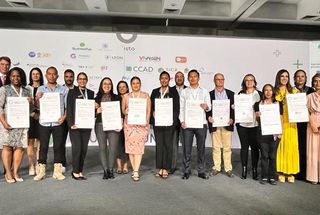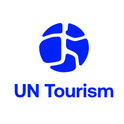UNWTO Welcomes Mexican States to Glasgow Declaration on Climate Action in Tourism
UNWTO has worked with tourism leaders from across Mexico to accelerate the sector’s shift to greater sustainability.

At the Sustainable Social Tourism Summit (León, 30 August – 2 September), UNWTO welcomed new high-level signatories to the Glasgow Declaration on Climate Action in Tourism. The Secretariats of State for Tourism of Ciudad de Mexico, Queretaro, Guerrero, Quintana Roo, Nuevo Leon, all signed up to the landmark declaration, designed to guide tourism to Net-Zero emissions by 2050 at the latest. They join the Secretariat of State of Tourism of Guanajuato which signed up at the COP27 United Nations climate change conference in Sharm El Sheikh, Egypt. The Secretary of State of Tourism of Guanajuato, Mr. Juan José Álvarez Brunel, heads the Sustainability Coordination of the National Association of Secretaries of tourism of Mexico A.C. (ASETUR) and led the discussion of climate action in tourism at sub-national level since becoming a signatory.
I greatly appreciate the assistance of my counterparts working for national tourism and the commitment to undertake climate change actions through the Glasgow Declaration. We have the honor to have the support of the UNWTO in this important event. Mr. Juan José Álvarez Brunel
A Circular Economy of Plastics in Focus
During the Summit, a new round of private sector stakeholders were also welcomed as signatories of the Global Tourism Plastics Initiative (GTPI) – another lighthouse initiative led by the United Nations Environment Programme (UNEP) and UNWTO within the framework of the One Planet Sustainable Tourism Programme. The signature reflects one of the outcomes of the Project Caribe Circular, led by the German Agency for International Cooperation (GIZ) in collaboration with Sustentur. This joint effort brought the total of the GTPI signatories to 200 organizations.
New signatories span across Mexico, Guatemala, Costa Rica, Nicaragua, Panama, Dominican Republic, El Salvador and Belize and include hotel chains (Las Brisas Huatulco, Grupo Lomas Travel, Karisma Hotels & Resorts, Grupo Presidente), independent hotels (Breathless Cancun Soul Resort and Spa, Boca Olas Resort & Villas/Dale Dale Café, Hotel Gran Costa Azul, Manzanillo Caribbean Resort, Pargos Restaurante y Hotel, Roca Sunzal, Sunbreeze Hotel, Hotel Hacienda Tijax, TreeCasa Hotel & Resort Nicaragua, Vega Inn and Garden, Victoriano), tour operators (Verde Sentir) and other tourism stakeholders (Asociación Nacional de Cadenas Hoteleras).
Collaborative Approach to Sustainable Consumption and Production
UNWTO is leading the One Planet Sustainable Tourism Programme and cooperates closely with UNEP and to accelerate the implementation of SDG 12, in line with the Global Strategy on Sustainable Consumption and Production 2030 which highlights the importance of collective approaches at national and sub-national level.
RELATED LINKS
- The Glasgow Declaration on Climate Action in Tourism
- Climate Action in the tourism sector: an overview of methodologies and tools to measure greenhouse gas emissions
- Signatories of the Glasgow Declaration
- Global Tourism Plastics Initiative
- Global Tourism Plastics Initiative Signatories
- GTPI 2022 Annual Progress Report
About UN Tourism
The World Tourism Organization (UN Tourism), a United Nations specialised agency, is the leading international organisation with the decisive and central role in promoting the development of responsible, sustainable and universally accessible tourism. It serves as a global forum for tourism policy issues and a practical source of tourism know-how. Its membership includes 166 countries, 6 territories, 2 permanent observers and over 500 Affiliate Members from the private sector.
Media enquires: [email protected]
UN Tourism Communications Department
+34 91 567 8100
UN Tourism
